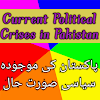Supreme Court of Pakistan ordered to Release of Imran
Khan
Supreme Court of Pakistan ordered to release of Imran Khan
the Chairman of Pakistan Tehrek-e-Insaf yesterday. Pakistan's High Court on
Thursday requested the arrival of previous State leader Imran Khan, whose
capture on defilement allegations recently started a flood of viciousness the
nation over by his allies.
After the decision, Khan left the court in a vigorously
safeguarded motorcade for a protected area. Conflicts between praising allies
of Khan and police momentarily broke out close to the High Court building, yet
viciousness around the nation seemed to ease. The public authority,
nonetheless, criticized the decision and said not entirely set in stone to
track down other legitimate roads to capture the previous chief.
For a country familiar with military takeovers, political
emergencies and brutality, the disturbance of the previous week has been
extraordinary. Since Khan's emotional capture on Tuesday, dissidents have been
conflicting with police in regions around the nation, and hordes have gone
after military and government destinations, attempting to storm the tactical's
fundamental central command and torching the home of a top general in Lahore.
The public authority answered with a crackdown on Khan's allies, capturing more
than 2,000 up to this point.
The High Court managed Khan's capture two days prior was
unlawful and, while it liberated him from guardianship, it requested him held
under insurance of safety powers in a protected area in the capital, Islamabad.
The top of his legitimate group, Babar Awan, underlined that Khan is a
"free resident" and will be permitted to meet with legal advisors and
allies. Boss Equity Umar Ata Bandial asked Khan to engage his allies to stay
serene.
Khan will seem Friday under the watchful eye of the
Islamabad High Court to reexamine its previous decision that the capture was
lawful. Khan may likewise ask the court for assurance from future capture on
the debasement allegations.
Talking on Pakistan's Dunya television, Inside Priest Rana
Sanaullah Khan promised, "We will capture him in the future," maybe
on charges that were declared a day sooner of prompting the flood of
viciousness. The clergyman isn't connected with the previous head of the state.
The decision enraged the public authority, with numerous
authorities blaming the main equity for inclination toward Khan. Boss Equity
Bandial "presently ought to raise the banner of Imran Khan's party on the
High Court, or he ought to proclaim that the court is a sub-office of Imran's
party," Azam Tarar, a counsel for Top state leader Shahbaz Sharif, told
journalists.
Safeguard Clergyman Khawaja Mohammad Asif considered it a
"exceptional respite" for the previous head of the state, saying the
court overlooked his allies' assaults on military and government
establishments.
The savagery has heightened a long consuming a conflict
between the previous state head and Sharif's administration. Khan was taken out
from office a year prior by a no-certainty vote in Parliament, yet he actually
holds intense help in numerous areas. He likewise has to deal with no less than
100 criminal penalties against him documented by different government
organizations, for the most part on debasement. Khan has portrayed his
expulsion and the charges as a component of a mission against him by Sharif, the
US and the Pakistani military — a case every one of the three deny.
The flash was the previous pioneer's emotional capture on
Tuesday. Khan was in court for one bunch of charges, when hostile to unite
specialists burst in, hauled him away and pushed him into a defensively covered
vehicle in association with different charges.
In the brutality that followed, somewhere around 10 of his
allies were killed and many nonconformists and in excess of 200 police officers
harmed. Dissidents burnt trucks, vehicles and police vehicles in the roads and
impeded expressways. It has repeated distress that followed the 2007 death of
previous State leader Benazir Bhutto during a political decision rally. Her
allies at that point, offended by her killing, rampaged for a really long time
across Pakistan.
Police documented new illegal intimidation charges on
Thursday against Khan and top pioneers from his Pakistan Tehreek-e-Insaf party
on charges of instigating crowds to savagery.
In a location to the country late Wednesday, Sharif said
Khan was captured on account of his contribution in debasement, and that there
was proof sponsorship up these charges.
He said the turmoil had constrained him to convey the
military in Islamabad, in Punjab - Pakistan's most crowded area — and in unpredictable
districts of the northwest.
Following the brutality, the public authority shut down
schools, schools and colleges in Punjab and northwestern Khyber Pakhtunkhwa
areas, where Khan has monstrous grassroots help and where the vast majority of
the savagery was accounted for. No less than seven of the dissident passings so
far have been accounted for in Khyber Pakhtunkhwa and two in Punjab's capital
Lahore, alongside one in the southwestern city of Quetta. The public authority
likewise suspended network access in different pieces of the country.
"We will capture every one of the people who upset rule
of peace and law," said Mohson Naqvi, the main clergyman in Punjab.
Dissenter assaults on the military have been surprising. The
military has straightforwardly administered Pakistan for the greater part of
the a long time since the nation acquired freedom from English pilgrim rule and
uses extensive control over regular citizen government
Khan allies have gone after the tactical base camp in
Rawalpindi and security posts in the northwest. In Lahore on Tuesday night,
demonstrators stripped and torched the home of the territorial commandant, Lt.
Gen. Salman Fayyaz Ghani.
The military promised on Wednesday to answer assaults by
demonstrators with full power. It said the assaults on its establishments were
sent off in a coordinated way, and the brutality was a "dark section"
in the nation's set of experiences.






0 Comments